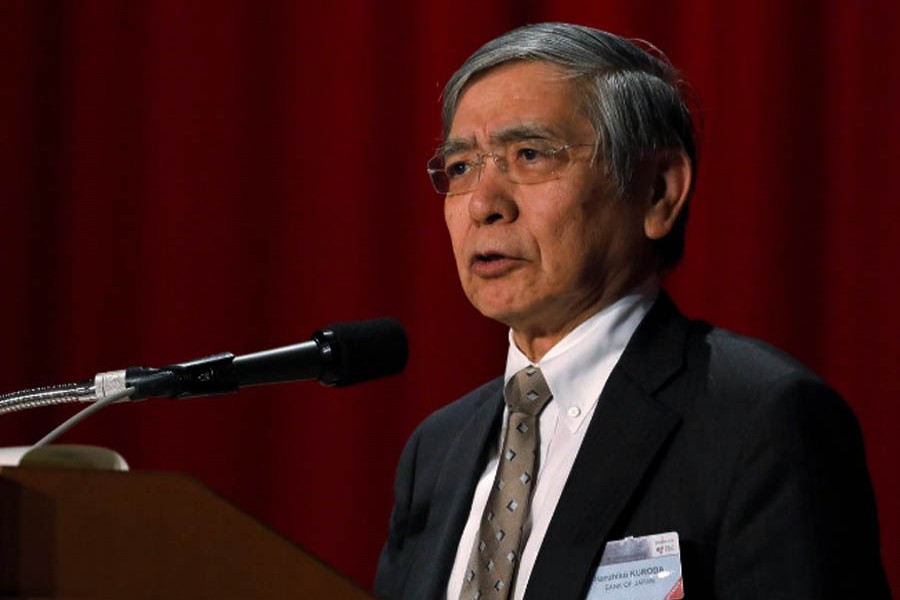The Bank of Japan (BOJ) may maintain ultra-low rates for a further period of well over a year, the central bank Governor Haruhiko Kuroda said on Friday.
However, he warned against the idea of propping up the economy through unlimited money-printing to finance government spending, reports Reuters.
The BOJ last month modified its forward guidance, or a pledge on how it will guide future monetary policy, to say it will maintain current very low interest rates at least until the spring of 2020.
“There’s a good chance current low interest rates will be maintained beyond (the spring of 2020) depending on future developments,” Kuroda said in a speech at a seminar.
“When we say we will keep rates low for an extended period of time, we mean it will be maintained for quite a long time,” he said later in response to a question from the floor.
Kuroda said while Japan’s economy continues to expand moderately, global growth was showing signs of weakness and hurting exports, output and manufacturers’ business sentiment.
“If overseas growth takes longer than expected to pick up, Japanese companies - manufacturers in particular - could become cautious about spending on capital expenditure,” he said.
Despite the darkening economic outlook, Kuroda dismissed the idea floated by some US academics to print money unlimitedly to bank-roll government debt for fiscal spending - a concept dubbed “Modern Monetary Theory” (MMT).
“When a central bank monetizes debt unlimitedly, it will most certainly trigger hyper-inflation and cause huge damage to the economy,” Kuroda said.
“It’s a common understanding among central banks of advanced economies that they ought not monetize debt,” he said. “MMT is a wrong idea, and I don’t think it is being applied in Japan.”
After years of heavy asset buying failed to drive up inflation to its 2.0 per cent target, the BOJ revamped its policy framework to one targeting interest rates from the pace of money printing in 2016.
Under a policy dubbed yield curve control (YCC), the BOJ now pledges to guide short-term interest rates at minus 0.1 per cent and the 10-year government bond yield around zero per cent.
Prolonged monetary easing has strained Japan’s regional banks by narrowing the profit margins of their core lending operations.
Kuroda said low rates and structural factors, such as a dwindling population, will likely weigh on regional banks’ profits.
“Regional banks must take steps to strengthen profitability,” he said, adding that mergers and consolidations, as well as alliances with other industries, could be among options.


